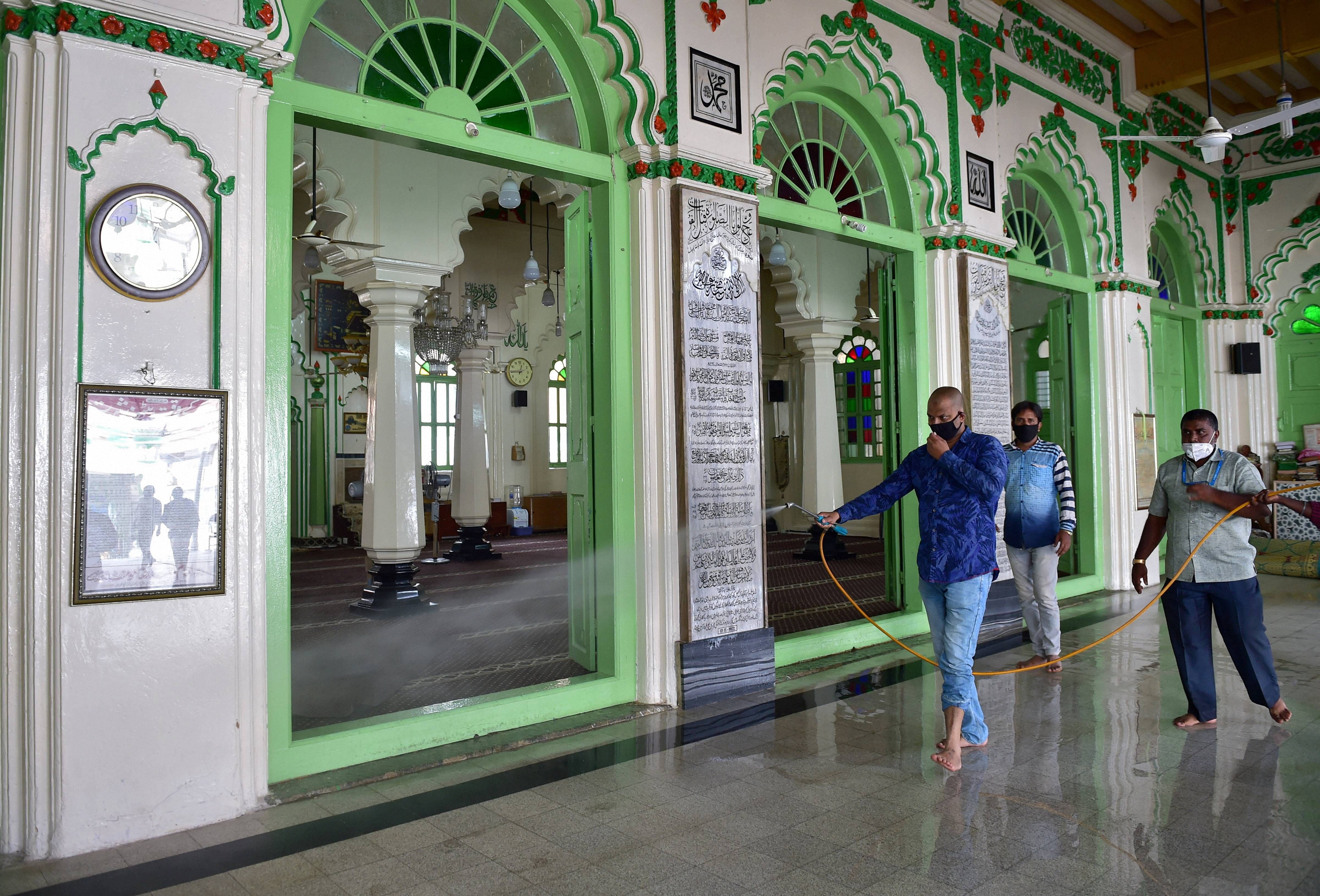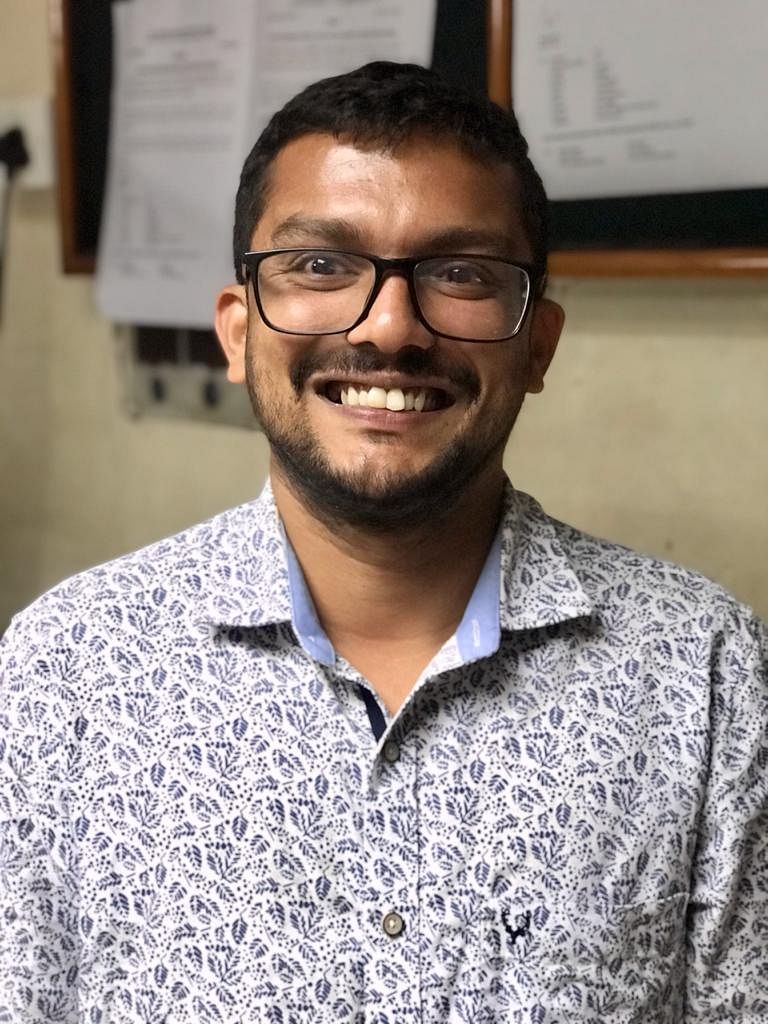
Disinfecting mosques everyday, restrictions on receiving Holy Communion during mass and other prayers at churches, and commencing and finishing prayers in "minimum permissible time" are among the guidelines issued by the Department of Minority Welfare, Haj and Waqf, as religious places open on June 8.
The guidelines specify the dos and don'ts at Muslim, Christian, Sikh, Jain, Buddhist and Zoroastrian places of worship to contain the spread of the coronavirus pandemic. These will be in addition to the general guidelines issued to religious places of worship, such as prohibition on large gatherings, mandatory masks and thermal screening to devotees, marking for social distancing, staggered entry to visitors to avoid crowding among others.
In addition to those, duties are assigned to management committee, devotees, imams and muezzins of mosques. Devotees will now have to perform Wazu (Ablution) at their homes, and carry their own namaz carpets to the mosque. The guidelines directed management committees to avoid common prayer mats, disinfecting entire msajid after Isha namaz and at regular intervals and staggered timings for Friday prayers.
Imams of mosques are restrained from long zikr or dua, complete Friday prayers in 15 mins and are directed to fix timings for batches to finish the Farz salath. While mosques will open for all five daily prayers, dargahs will open only between 10 am to 4 pm.
No holy communion
Churches are allowed to hold public masses on Sundays, with directions to celebrate it on week days if the number of participants is more. The use of liturgical booklets and hymnals are prohibited, and "Holy Communion shall be received strictly on hand or other alternatives prescribed by the bishop for the time being".
The guidelines restricted church activities for Eucharistic services alone, preventing other events such as rosary, novena prayers, baptism, first communion, marriage and others. Churches are also encouraged to live stream masses for those who cannot attend due to various reasons, and the priest of a parish will ensure strict implementation of measures to contain COVID-19.
Gurudwaras are also encouraged to commence and finish prayers in minimum permissible time, and notify Sunday prayer timings of three separate batches if necessary. Extra devotees in all religious institutions will have to wait outside maintaining social distancing norms, until a prayer session is complete.
Both Jain Basadis and Buddhist Viharas will have to finish prayers as soon as possible. At Viharas there will be no distribution of goutham prasadi nor use of pooja wheels attached to stupas. At Zoroastrian Agyaris, presence of more than four devotees in the kebla, touching priests' hand while offering sukhad is not permitted.
